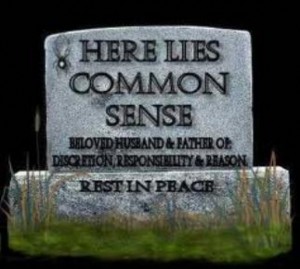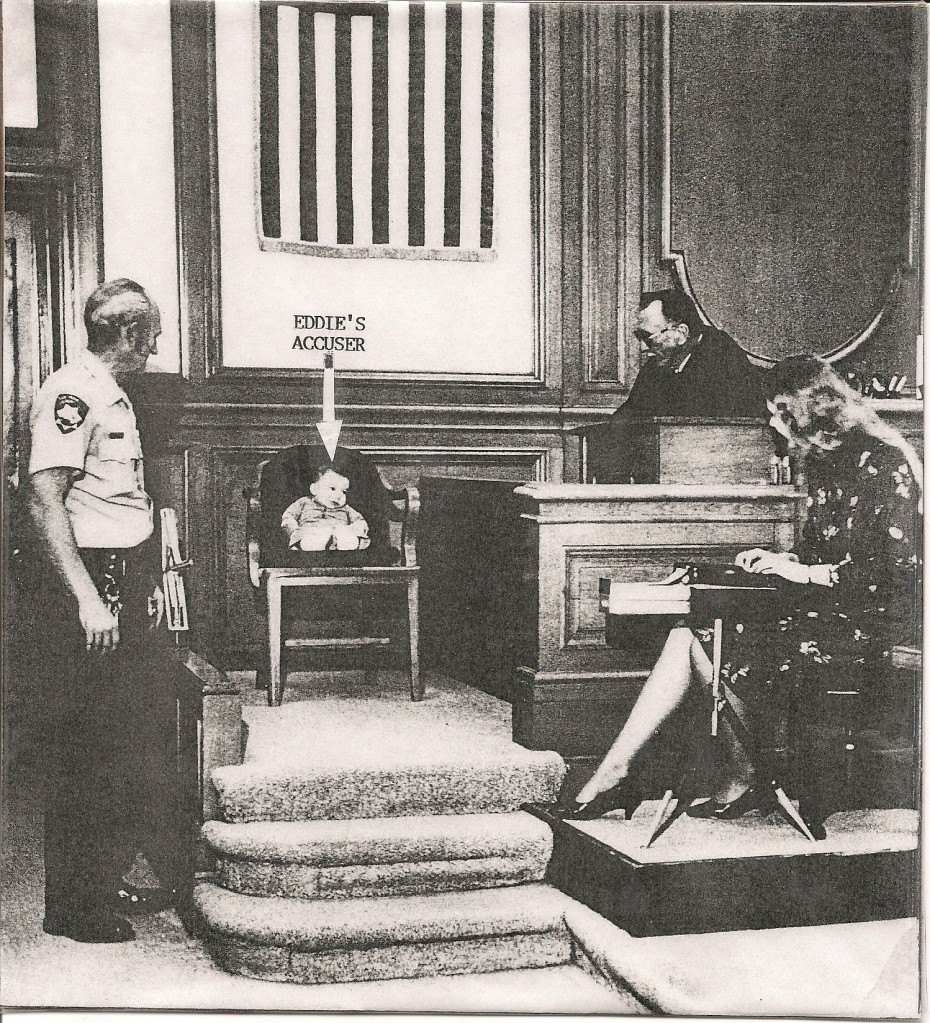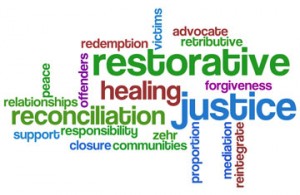[In which we negotiate another materials purchase courtesy of the Governor, and try not to contribute to the further delinquency & depravity of the Hardened Criminal….]
Christmas! (but with a Caveat)
Our Libraries here have friends in high places, notably from the Department’s Education Division, where no less than the Director of Inmate Education and Training and the Assistant Director both have a genuine love for libraries and a respect for their power and majesty. Whenever possible (usually once a year), Education bestows a few grand on each of the Libraries in our system.
The caveat is that approximately 25% of that money should go to careers & jobs, Spanish-language, large-print, re-entry/reintegration, and language instruction material.
This time, we have $1,700 to do with as we choose, so long as we keep to the 25% caveat above, and so long as the material is in concert with legitimate penological objectives. Because I work for Norfolk, I have the additional restriction and responsibility of ensuring that the material is in concert with the policy language found in the December 1, 2011 addendum to the Norfolk Procedures relating to 103 Code of Massachusetts Regulation 478, “Library Services.” Piece of cake.
SPOILER ALERT: We end up buying 152 books, including (1) DVD and (21) CDs. That’s making those tax dollars stretch. And it’ll give my cataloguer something constructive to do for a solid week, which is nothing to sneeze at.

It isn’t mobile. And it’s not a fair. But it does have books. Tons of books.
Since Fiscal wants us to spend this money fairly quickly, most of us choose to patronize our old standby: the New England Mobile Book Fair. I’m told they have over a million titles in stock. Having never counted them, I don’t rightly know. But it’s an enormous store, divided into two main sections. If you walk into the main entrance and turn right, you enter the retail section; walk in & turn left, and you’re in the gigantic remainder section. For retail, NE Mobile gives a flat 20% discount as well as best seller discounts. Most remainder books sell between $3.98-$7.98. It’s an experience, and whenever you’re out in this part of the country, it’s a booklover’s must. The store was recently sold to one of the nicest men you’ll ever meet and—just as importantly—he’s a booklover. It’s truly a wonderful, laid-back place to shop.
NE Mobile Book Fair Flickr photostream
Spinning the caveat to my greatest advantage
Regarding large-print: since we already purchase books occasionally from Thorndike, I choose not to be concerned with large-print at this time. And even though they do have a respectable (not sizable, but respectable) Spanish-language section toward the back of the store near Shipping, I saw nothing of use this time. I did, however, buy some foreign-language CD sets while back there.
The Flying Wallendas balancing act between What Inmates Want vs. What They Can Have
Well, at my place, I don’t have too much trouble. Having talked with me and participated in my socialization programs for years, inmates are fairly familiar with how I see my role and responsibilities. They know they can ask me for anything. They also know that I will limit their requests based on Department-wide and Norfolk-specific guidelines. If I can’t get what they want, I will explain why. Unless the immediate situation demands it (like an emergency), you always give an inmate an explanation for why s/he has to hear “Sorry” or “No.” The Golden Rule, after all.
I always announce on the Lending Library bulletin board when I’m preparing for the next book buy, which is their cue to petition me for titles and subjects that either they need (a school assignment) or they’re interested in (pleasure reading). My cataloguer keeps track of these requests in an Excel file, which I print out & take along on the appointed day. I find gratification when I can find something that someone has their heart set on. I think all Librarians do. It’s part of why we do what we do. On this day, I’ve been approved to use (8) hours to look and see what I can see. I’ll not need that much time, but for my personality I do this work best when I’m not racing against the clock.
 Today I have (31) inmate requests to fill. From those, this is what I find:
Today I have (31) inmate requests to fill. From those, this is what I find:
Tale Of Two Cities (replacement copy)
63 Documents The Government Doesn’t Want You To Read
Magician: Master
Men Are From Mars, Women Are From Venus (replacement copy)
Writer’s Market 2012 (to replace our 2011 copy)
God’s Shrink: 10 Sessions And Life’s Greatest Lessons From An Unexpected Patient
Writer’s Digest University
Mabinogion Tetralogy
Rise Of The Blood Royal
W.E.B. Griffin (Lieutenants/Captains/Generals)
New Jim Crow
All God’s Children: The Bosket Family And The American Tradition Of Violence (to replace our beat-up copy)
Defending Jacob (a novel about the adjudication process, recommended by a NEMBF employee who is familiar with the criminal justice system)
Faith (a novel)
Diary of Eve/ Diary of Adam (for a Mark Twain fan)
Clan Of The Cave Bear/ Valley Of Horses (3rd and 4th replacement copies, respectively, which is getting old….)
Micro and Next (for a Crichton fan)
Anthem (replacement copy)
American Fantastic Tales: Terror And The Uncanny From Poe To The Pulps (not an actual request, but they’re out of Lovecraft)
For some reason, they don’t have Hole in the Universe, a 2004 novel by Mary McGarry Morris, which figures, because it’s for the library clerk who assists me in my Tuesday night ABLE MINDS course. Well, you always want to kind of ‘reward’ the people who actually help you do things. Here, I use the term ‘reward’ in its loosest possible sense, because you’re not supposed to play favorites. But I know that I’m within the rules, because his is a legitimate request. I’m talking about my sense of fairness, given how much time and enthusiasm he gives to the program. Stinks.
Helping Cons Help Themselves
Next, I take my mini-shopping cart and wheel it to the retail Self-Help section. This is the one time of year that I load up on recovery texts. They’re not cheap, but prisoners need them and use them, so I’m not shy about tossing them in the cart. This is what I get:
1. Workbook Of Compulsive Hoarding & Acquiring
2. Self-Esteem Workbook
3. Cognitive Behavioral Workbook For Anxiety
4. Shyness & Social Anxiety Workbook
5. Mind-Body Workbook For PTSD
6. Everything GT Stress Management
7. It Will Never Happen To Me: Growing With Addiction As Youngsters, Adolescents, Adults
8. Lord Of The Rings And Philosophy (for my Wednesday night ABLE MINDS program, to replace my personal copy that pines for its place on its shelf at home)
9. Act Like A Lady, Think Like A Man: What Men Really Think About Love, Relationships, Intimacy, And Commitment
10. Harness Your Dark Side: Mastering Jealousy, Rage, Frustration And Other Negative Emotions
11. Learned Optimism: HT Change Your Mind And Your Life
12. Saying Goodbye: A Guide To Coping With A Loved One’s Terminal Illness
13. When Panic Attacks
14. Grieving The Death Of A Mother
15. Victory Over Verbal Abuse
16. I Hate Conflict! Seven Steps To Resolving Differences With Anyone In Your Life
17. Fireproof
18. Grieving Mindfully: A Compassionate And Spiritual Guide To Coping With Loss
19. I Beat The Odds: From Homelessness To The Blind Side And Beyond
20. Children Of The Self-Absorbed: A Grown-Up’s GT Getting Over Narcissistic Parents
21. Why Am I Still Depressed?
22. Easy Way To Stop Drinking
23. Hi, My Name Is Jack: One Man’s Story Of The Tumultuous Road To Sobriety And A Changed Life
24. Alcoholics Anonymous (4th Ed.)
25. Confusing Love With Obsession
26. Save The Males: Why Men Matter, Why Women Should Care
27. Disarming The Narcissist: Surviving And Thriving With The Self-Absorbed
28. Loving Someone With Bipolar Disorder
29. Calming The Angry Brain: How Understanding The Way Your Brain Works Can Help You Control Anger And Aggression
30. Sleeping With A Stranger: How I Survived Marriage To A Child Molester
31. Healing After The Suicide Of A Loved One
32. You’re Smarter Than You Look: Uncomplicating Relationships In Complicated Times
33. Seven Simple Steps To Personal Freedom: An Owner’s Manual For Life
34. 10 Stupid Things Men Do To Mess Up Their Lives (a replacement copy)
35. When Someone You Love Is Depressed
36. Yes, You Can! 1,200 Inspiring Ideas For Work, Home & Happiness
37. To Be A Man: In Search Of The Deep Masculine
38. Guide To Stress Reduction
39. A Man’s Way Through The 12 Steps
40. Real 13th Step: Discovering Confidence, Self-Reliance, And Independence Beyond The 12-Step Programs
I just realized that some of these are remainder titles.

Anyway, it’s a good haul. We’ll have to make a little space for them. We intend to re-section our trade fiction paperbacks currently shelved in a wooden “tower”-type bookcase built around a brick pillar in the Lending Library. This ‘pillar case’ ;o) abuts the wooden unit where we shelve approximately 500 self-help/ recovery titles. My goal is to fill this pillar case with more self-help/ recovery/ inmate-specific texts as the years roll by. It’s astonishing and heartening how many inmates avail themselves of this material. Some of them tell me how grateful they are that we offer this stuff. That’s all the encouragement I need. I do not believe, as some do, that a correctional Library should be nothing more than material that addresses the causes and problems of criminality. But I do think that a sizable percentage (10% of the collection) should be available to help prisoners overcome their criminal ways. Norfolk Lending Library houses about 13,000 items; our Self-Help/Recovery section has about 500 items. We’ve a ways to go….So we end up with 40 self-help/recovery titles out of a total purchase of 152 books. The 25% caveat has already been satisfied.
Humor-as-Therapy: or, “Stop it, you’re KILLING me!”
I am a huge proponent of humor-as-therapy for the incarcerated. It works for those on the outside, why not for the imprisoned? In fact, from the poking around I’ve done (Mindess, Moody, Eastman, Keller, Klein), I now view humor as a type of correctional self-help material.
 In the past 10 years, I’ve spent a lot of time choosing this stuff for the collection, and Norfolk now has a Humor section of a little over 200 books. To this I now add the following:
In the past 10 years, I’ve spent a lot of time choosing this stuff for the collection, and Norfolk now has a Humor section of a little over 200 books. To this I now add the following:
1. New New Rules (by Bill Maher)
2. Ecstasy Of Defeat: Sports Reporting At Its Finest By The Editors Of The Onion
3. Bossypants
4. Best Of The Rejection Collection (New Yorker)
5. Humorous Verses Of Lewis Carroll
6. Brief(Er) History Of Time
7. Dread & Superficiality: Woody Allen As Comic Strip
8. Funny Ladies: The New Yorker’s Greatest Women Cartoonists and Their Cartoons
Next time, we’ll conclude this sale, and start the grueling procedure called “Getting This Stuff Inside”….













